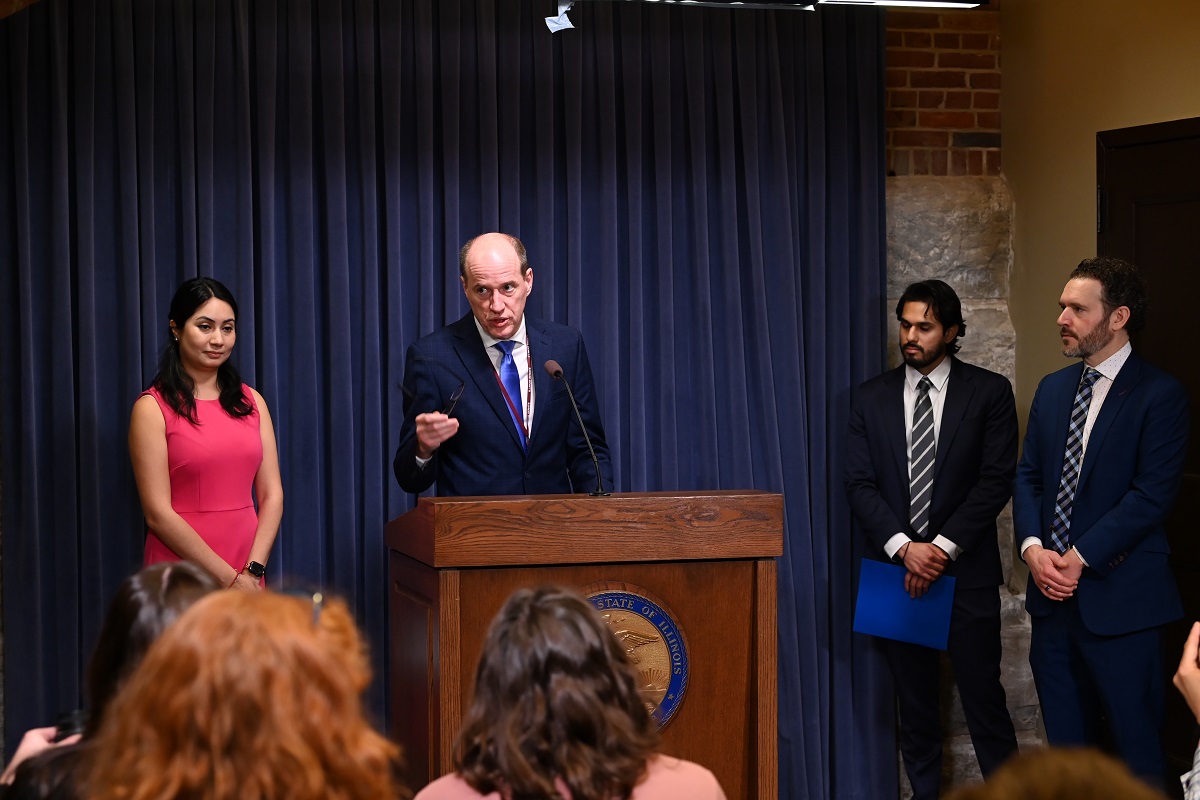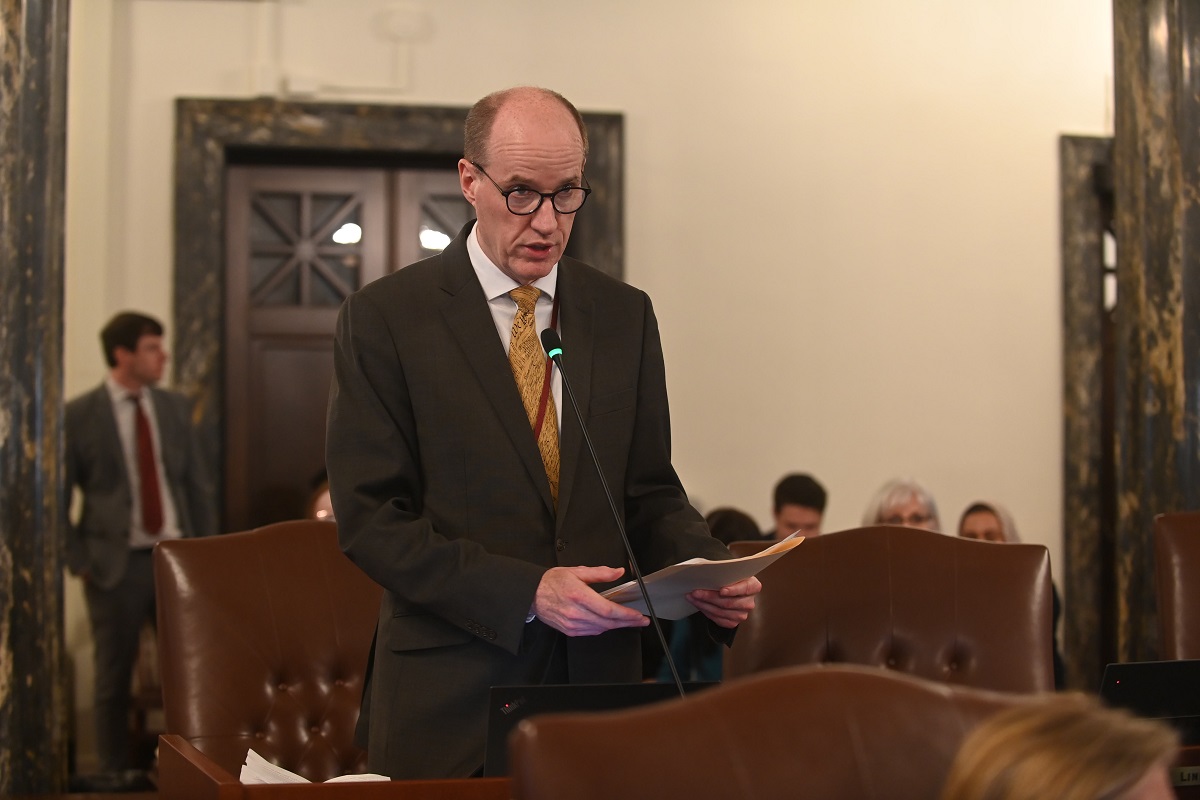- Details
- Category: Press Releases

SPRINGFIELD – State Senator Bill Cunningham held a press conference Tuesday to introduce legislation aimed to address a projected energy deficit for Illinois.
“With energy prices skyrocketing across the country and leaders in Washington opening the floodgates for fossil fuels, our bill makes it clear that Illinois will remain at the forefront of lowering energy costs while investing in clean energy,” said Cunningham, a Democrat who represents portions of Chicago and the Southwest Suburbs. “This legislation proves to the nation that we don’t have to choose between taking care of our communities, our economy, or our planet.”
Senate Bill 2497 would address Illinois’ energy crisis caused by rapid inflation and steep tariffs on many goods used to build and maintain energy infrastructure. The bill would also address and rectify significant delays in connecting clean energy projects to regional energy grids.
The bill would by establish a target for Illinois to build 15 gigawatts of clean energy storage – a battery technology that stores excess solar and wind power for later use – and remove barriers keeping newly built clean energy infrastructure from connecting to the grid, potentially saving consumers $2.4 billion on energy bills over the next 20 years.
Senate Bill 2497 awaits a committee assignment.
- Details
- Category: Press Releases

SPRINGFIELD – State Senator Bill Cunningham, a Democrat who represents portions of Chicago and the Southwest Suburbs, released the following statement Wednesday after the governor outlined his budget proposal for Fiscal Year 2026:
“We can’t forget that funding for the state budget comes from taxpayers, so we have to be responsible with how the money is spent. The governor’s proposed budget is a good starting point for negotiations. With a little bit of fiscal discipline, we should get to a point where the finalized budget meets the needs of Illinois residents in a responsible way.”
- Details
- Category: Press Releases

Cunningham goes toe to toe with towing industry and wins
CHICAGO – Starting on Jan. 1, 2025, State Senator Bill Cunningham’s new law eliminates questionable fees towing companies charge and gets rid of shady shakedowns over lifesaving medical devices.
“I was furious to find out that car owners cannot recover their personal medical devices, like hearing aids, from their vehicles – even if their vehicle is stolen and later towed,” said Cunningham, a Democrat who represents portions of Chicago and the Southwest Suburbs. “Holding medical devices hostage is going way too far, and punitive tricks to maximize profits just give people another reason not to trust the towing industry.”
- Details
- Category: Press Releases

CHICAGO – State Senator Bill Cunningham announced the Oak Lawn Park District and Worth Park District will each receive $600,000 in grant funding for local park projects.
“It might be wintertime and a lot of people aren’t thinking about their local parks, but the programming that park districts provide for our community are such an asset to the Southwest Suburbs,” said Cunningham, a Democrat who represents portions of Chicago and the Southwest Suburbs. “I am happy to have helped secure funding for our park districts so they can continue to provide safe and fun activities for families.”
The grant funding is provided through the Open Space Land Acquisition and Development (OSLAD) program. A total of $55.2 million was awarded to 100 local park projects across the state.
More Articles …
Page 6 of 85



